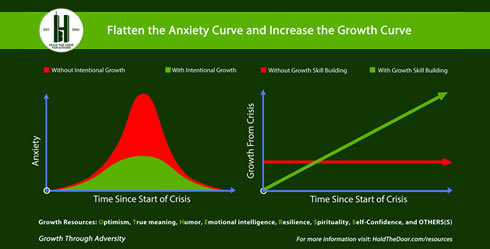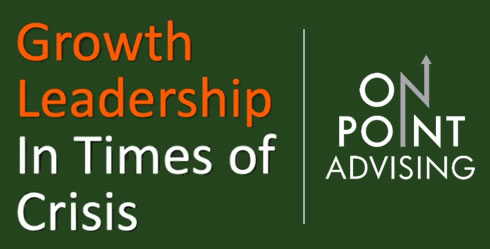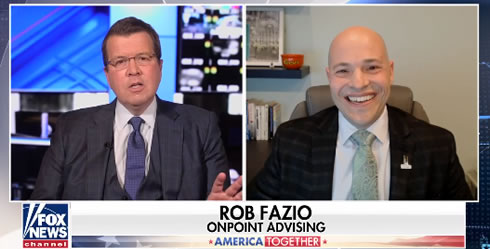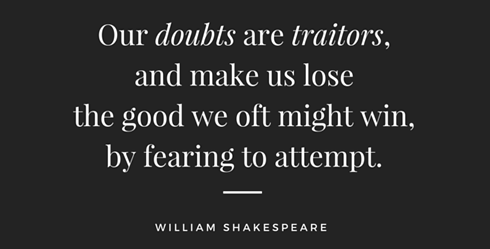Who will be our next president? Psychological swagger is the secret sauce.
Let me start by making one thing clear. I am not advocating for one side of the political aisle or the other. I advocate for people to think for themselves and to make decisions based on facts and feelings. That’s what brings us to psychological swagger. If embraced, it can be the perfect integration of facts and feelings.
With over two decades of working with people who want to succeed, I have learned that many factors lead to success. However, the most important ingredient in the recipe for success is psychological swagger.
You may not know what psychological swagger is, but you definitely know when someone has it or not.
Psychological swagger is how you “show up” for yourself and others. When I say “show up” I’m talking about your presence and how people view you. Right, wrong, or indifferent, people often make a snap judgment within seconds of what they see and what you say. To keep it simple, what people say to themselves is either “I want to listen to this person” or “I want this person to stop talking.”
It comes down to aligning your intention with your impact. What people say about you when you enter a room and exit a room is what leaves a lasting impression. Have you ever worked with someone who is smart, but you say to yourself, “they just don’t have that ‘X’ factor?” That “X” factor is psychological swagger. It stems from your belief in yourself. Your beliefs impact your behavior and your behavior impacts your brand.
There are two core aspects to psychological swagger, inside and outside. “Inside” is what you say to yourself and “outside” is what people see and how you show up. What you say is the content, what people see is the context. The two aspects of psychological swagger play off one another. The more positive you are and more confident you are, the more confidence people see.
What people see matters. It creates the story people tell themselves about you. This story can be created in ninety seconds or less. That’s pretty fast. The good news is you can create the story by writing it yourself and being intentional.
How does this relate to who may be our next president?
Americans are drawn to and motivated by confidence and emotion. That emotion may be hope, it may be fear, or it may be passion. Regardless of your political affiliation, and whether you know it or not, emotion is what connects you to your favorite candidate. Even if you are “Vulcan” (that’s a Star Trek reference just in case I am dating myself), and focused only on facts and logic, the facts and logic are what emotionally connects you to your candidate of choice.
Think about which candidates on both sides get the most media attention and do the best in the polls on both sides? Interesting isn’t it? Candidates who can speak with swagger and have presence get ratings and they get votes. Often it has nothing to do with who has the best track record, or who is best equipped to lead the country. It has to do with who can connect with you emotionally and/or command your attention.
How does this relate to you?
If you want to be successful, you need to find your psychological swagger. I am not saying you need to walk around and be arrogant. I am saying if you want to be successful, you need to own your version of courage and confidence. Awareness of what makes you confident as well as what makes you quiver is critical. When you know what makes you confident or makes you quiver, you set your direction rather than letting other people push you in directions you may not want to go. People can sense your swagger and that’s how they determine if you are a leader worth following.
My last piece of advice is to become an expert on psychological swagger. Identify people who have it and integrate some of those behaviors into your daily routine. Successful people like Elon Musk, Oprah, Jeff Bezos, Howard Schultz and Ellen DeGeneres are great examples of leaders who have mastered the art of psychological swagger.
There is a person I worked with for years who had a subtle psychological swagger. His swagger was all about being credible and consistent. People followed him because they knew he had integrity, and you always knew where you stood in his eyes. He wasn’t charismatic and a “big personality,” however, at the same time he had tremendous psychological swagger. Again, it’s not arrogance, it’s confidence. The difference is that arrogant people talk about themselves, confident people get talked about and talk about others. It’s about having enough ego to know that you can add value, while also having enough smarts to know that you need people around you that are better than you at certain things and being OK with that.
There are six setbacks that keep people from having swagger: Insecurity, doubt, stubbornness, helplessness, thinking errors and getting stuck in reverse. You can learn more about these by reading more in my new book, Simple is the New Smart.
As much as I would appreciate you buying the book and letting people know about it, what’s more important to me is that you understand psychological swagger, and realize that you have it and are capable of tapping into your inner swagger. You know that what you say to yourself impacts how people see you. What people see determines if they think you have what it takes to be successful. You define what success means to you. What I want to do is accelerate your path, and psychological swagger is a solid first step. Take it.



























